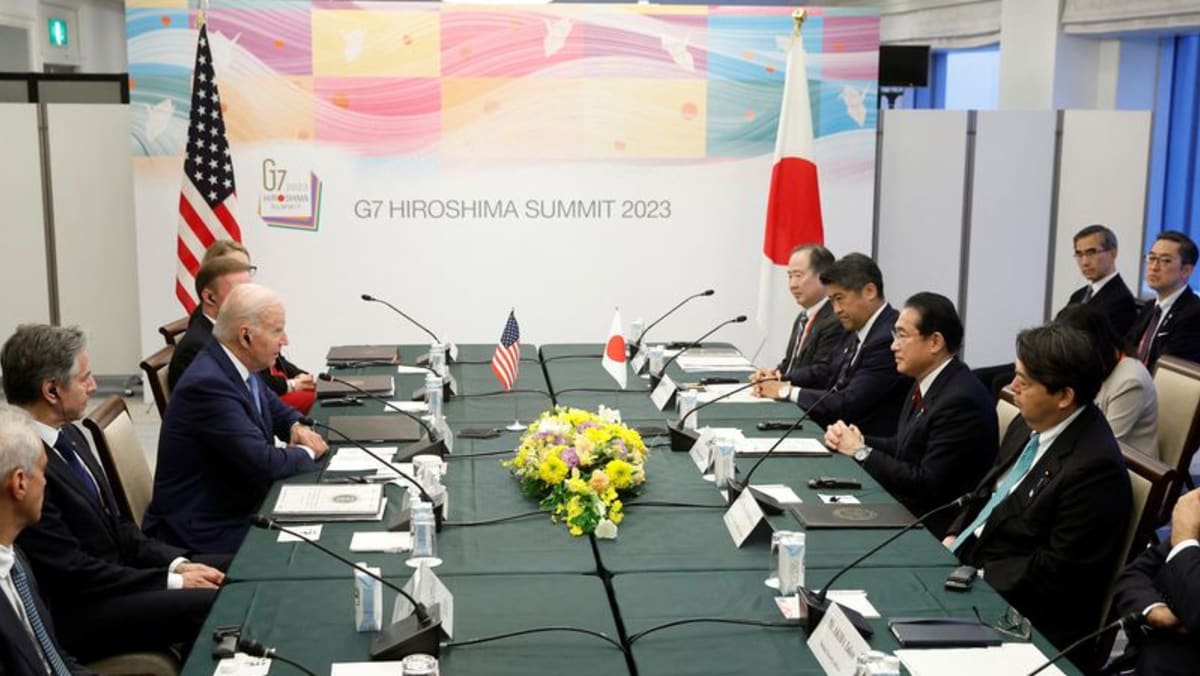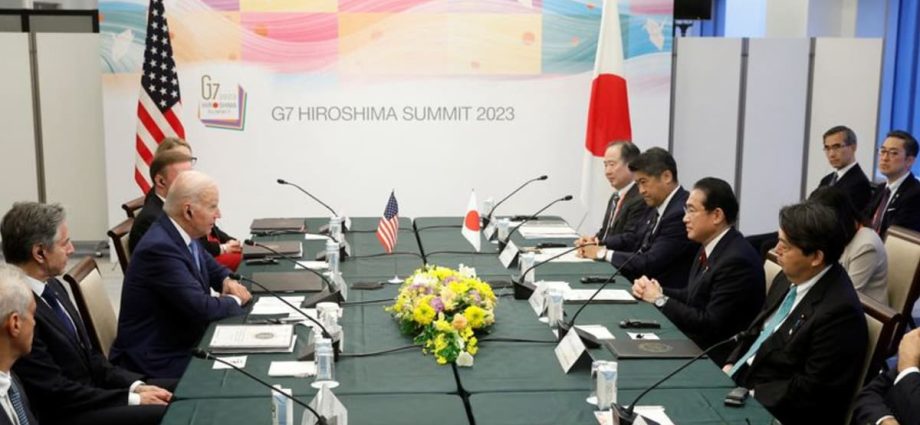
TIGHTEN SANCTIONS
The G7 will aim to tighten sanctions on Russia to prevent it skirting measures already in place, Germany’s leader, Olaf Scholz, said on Thursday.
The US will have a package of sanctions associated with a G7 statement that will centre on such an issue of enforcement of Russian sanctions, US National Security Adviser Jake Sullivan told reporters on board Air Force One.
Kishida later said he and Biden had agreed to continue “strict sanctions against Russia as well strong support for Ukraine”.
Ukrainian President Volodymyr Zelenskyy will join one G7 session via teleconference on Sunday, Kishida said. There had been some speculation he might travel to Hiroshima but Kishida said while he was aware of such talk, the schedule “is as announced”.
Kishida and Biden also shared understanding on the importance of protecting strategic technologies, a Japanese government spokesperson said.
Earlier on Thursday, Kishida met with the heads of some of the world’s top chip companies, asking them to invest more in Japan and sending a clear sign of the deepening security importance of advanced technology and supply chains at the G7.
Kishida told the executives, including those from Micron Technology, Intel and Taiwan Semiconductor Manufacturing, that stabilising supply chains would be a topic of discussion.
“I am very pleased with your positive attitude towards investment in Japan, and would like the government as a whole to work on further expanding direct investment in Japan and support the semiconductor industry,” Kishida said.
An industry ministry official later said Kishida wanted to foster cooperation to strengthen semiconductor supply chains, while Industry Minister Yasutoshi Nishimura said Japan would use ¥1.3 trillion (US$9.63 billion) of the supplementary budget from the last fiscal year to support its chip business.

